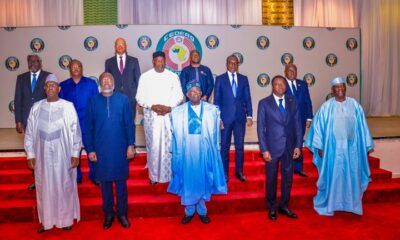The World Bank has approved the Nigeria Sustainable Urban and Rural Water Supply, Sanitation, and Hygiene Program (SURWASH).
The $700 million credit from the bank’s subsidiary, the International Development Association (IDA) will provide six million people with basic drinking water services and 1.4 million people access to improved sanitation services in the West African country.
According to a statement, the program would deliver improved water sanitation and hygiene (WASH) services to 2,000 schools and Health Care Facilities and assist 500 Communities to achieve open defecation free status.
These would be implemented as part of the Government of Nigeria’s National Action Plan (NAP) for the revitalisation of Nigeria’s water supply, sanitation, and hygiene sector, it added.
“In 2019, approximately 60 million Nigerians were living without access to basic drinking water services, 80 million without access to improved sanitation facilities and 167 million without access to a basic hand washing facility.
“In rural areas, 39 percent of households lack access to at least basic water supply services, while only half have access to improved sanitation and almost a third (29 percent) practice open defecation – a fraction that has marginally changed since 1990.
“In recent years, the Government of Nigeria (GoN) has strengthened its commitment towards improving access to WASH services, spurred on by the need for Nigeria’s WASH sector to catch up with its regional counterparts. This led to the government declaring a state of emergency in 2018 and launching the NAP aimed at ensuring universal access to sustainable and safely managed WASH services by 2030, commensurate with the SDGs,” it added.
Furthermore, the statement explained that the program would support the NAP which is a 13-year strategy prioritising actions within three phases: Emergency Plan, Recovery Plan, and Revitalization Strategy and also the Clean Nigeria; Use the Toilet Campaign which aims to have Nigeria free of open defecation by 2025.
“Given that access to WASH is an important determinant of human capital outcomes, including early childhood survival, nutrition, health, learning, and women’s empowerment – all of which in turn affect labour productivity and efficiency; the Program’s centrality to the human capital agenda and its potential to influence key human capital outcomes cannot be overemphasized,” World Bank Country Director for Nigeria, Shubham Chaudhuri said.
“Participating States will be able to improve access to safe water, sanitation and hygiene which will help to keep more girls in school, create employment, and reduce open defecation, while developing greater resilience to the impact of climate change, as well as conflicts between different land and water users,” he added.
The SURWASH Program, is performance based and participation is open to all states in Nigeria based on their commitment to specific reforms in the sector. The Program will support the GoN to enact necessary policy reforms and incentivize state and local governments, service providers, Technical Assistance providers, and community-based organisations (CBOs) to effectively deliver sustainable services in the sector. It will support a package of investments to expand access to and increase the use of WASH services in urban, small towns and rural areas.
Specifically, the program will support the development of infrastructure to improve water supply service delivery, sanitation and hygiene in institutions (schools and healthcare facilities) and public places such as markets, motor parks and others.
The World Bank’s IDA, established in 1960, helps the world’s poorest countries by providing grants and low to zero-interest loans for projects and programs that boost economic growth, reduce poverty, and improve poor people’s lives.
IDA is one of the largest sources of assistance for the world’s 76 poorest countries, 39 of which are in Africa. Resources from IDA bring positive change to the 1.6 billion people who live in IDA countries. Since 1960, IDA has supported development work in 113 countries. Annual commitments have averaged about $21 billion over the last three years, with about 61 percent going to Africa.

 News3 weeks ago
News3 weeks ago
 Business3 weeks ago
Business3 weeks ago
 Technology3 weeks ago
Technology3 weeks ago
 Investment3 weeks ago
Investment3 weeks ago
 Banking Sector3 weeks ago
Banking Sector3 weeks ago
 Banking Sector3 weeks ago
Banking Sector3 weeks ago
 Appointments3 weeks ago
Appointments3 weeks ago
 Investment3 weeks ago
Investment3 weeks ago





























